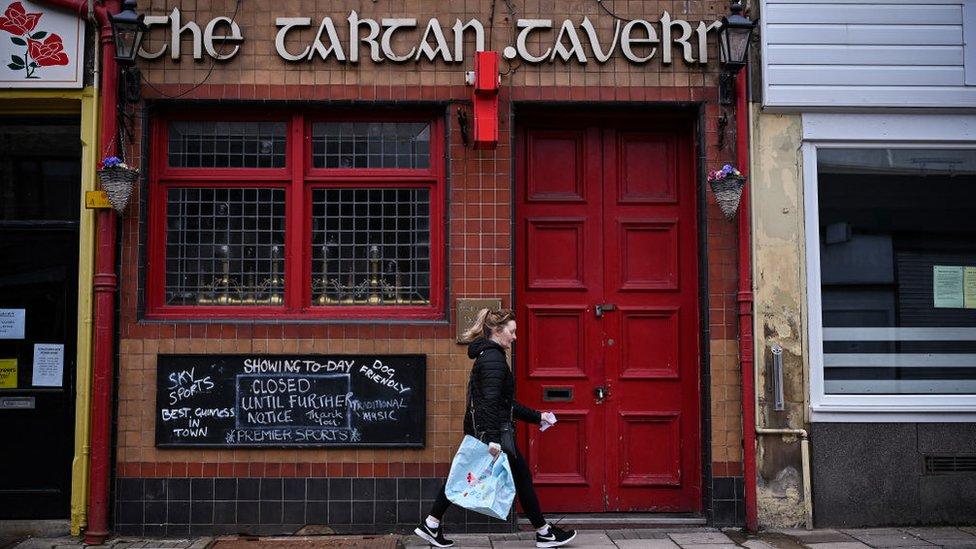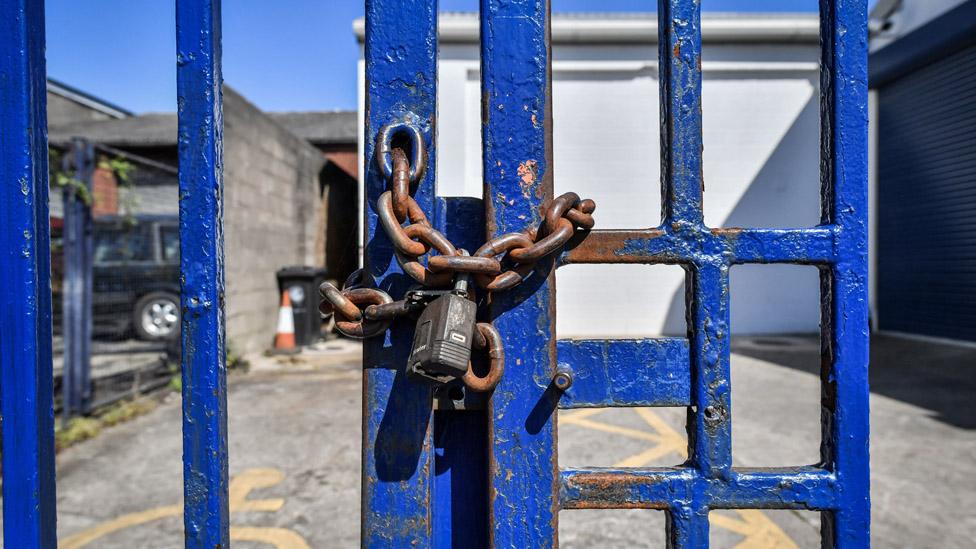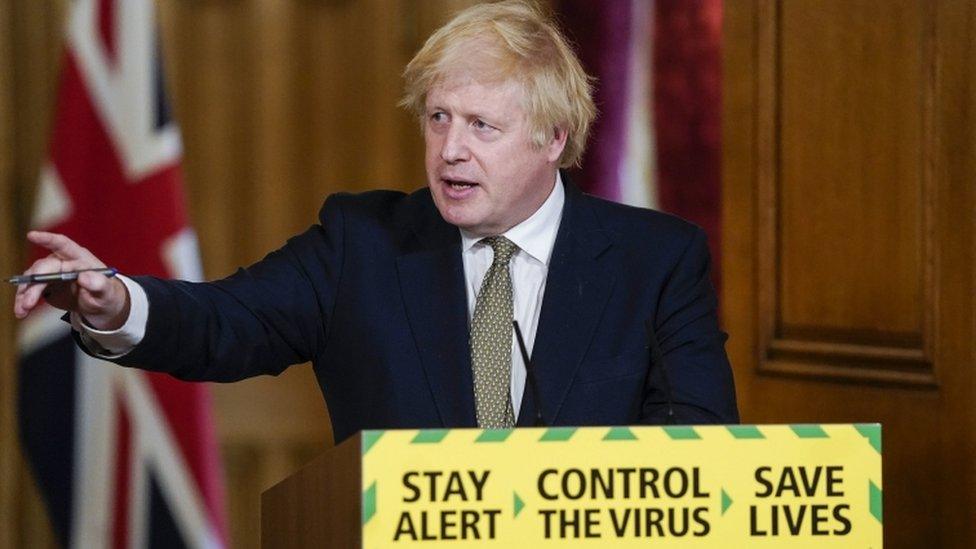Coronavirus: Scots' fears over economic impact of lockdown
- Published
- comments

Many Scottish businesses remain shut down - and Scots worry about going back to life as it was before
Scotland's coronavirus restrictions are set to be eased - but Scots have voiced fears about going back to life as it was before lockdown and the economic impact of the crisis.
A survey for BBC Scotland suggested 72% of people think the economy is going to "get worse" over the next 12 months.
And a majority of people who took part said they would avoid large crowds and going to bars and restaurants after lockdown is lifted, with 48% saying they were unlikely to go back to life as it was before.
What do people think about the economy?
The survey suggested Scots are pessimistic about the future of the economy, with 72% saying they thought it would "get worse" over the next 12 months.
Only 16% said they thought it would improve, while 10% said it would stay the same.
Asked about their personal finances, 59% of people said they were either "very" or "fairly" concerned about the impact of the pandemic, to 39% who were unconcerned.
This feeling was highest among those aged 35 to 54, of whom 66% voiced fears.

Economic confidence 'lowest ever'
Analysis by Emily Gray, managing director of Ipsos Mori Scotland
This is the lowest level of economic confidence that Ipsos Mori has ever recorded in Scotland. We first started asking this question of the Scottish public in 2009, in the aftermath of the 2008 financial crisis.
This level of economic pessimism among Scots is comparable to the levels recorded among the UK public at the worst of the 2008 financial crash.
With Scotland and the wider UK set to face a severe recession, the public's economic pessimism is understandable. There is widespread awareness that more hardship is imminent, and a majority in Scotland are worried about the financial impacts to come.
Concern about the financial impact of the pandemic is highest among the middle-aged, part-time workers and those employed in the private sector. These differences in levels of concern make sense, as some groups in Scotland will be more exposed to the financial impacts of the pandemic than others.

There is a very real risk that the coronavirus outbreak will lead to a worsening of inequalities, the scale of which will depend in part on what support is in place for those who are hardest hit.
Young people are less concerned about the financial impacts of the coronavirus outbreak than their older counterparts are. This may well change in the coming months as young people are also disproportionately likely to work in those sectors that are being impacted most by the pandemic, such as retail, hospitality and tourism.
It is all too apparent to Scots that Covid-19 has become an economic crisis. Public health remains the top priority - as Ipsos Mori's wider polling has shown. But that does not alter the fact that most people in Scotland are worried about the economic prospects for Scotland and the financial outlook for themselves and their families.
There is much discussion among policymakers about the route out of the crisis; can Scotland use this opportunity to create a fairer, greener and more inclusive economy in the wake of the pandemic by "building back better"?
In the short term, though, minimising the economic damage and supporting those who are hardest hit as far as possible will be key to rebuilding public confidence.

Lockdown has had a stark impact on businesses

How will people change their behaviour in future?
The survey suggested Scots may be slow to return to life as it was before, with 48% saying they were likely to "go back to doing all the things you did before lockdown" after restrictions are eased - the same number as said they unlikely to.
A total of 78% of respondents said they were likely to avoid large crowds in future, while 62% said they were unlikely to go to bars and restaurants.
Compared to how they behaved at the beginning of March, 41% of respondents said they were more likely to get around by walking in future, while 43% said they would look to "take holidays within Scotland".

However, a majority of those polled said their spending and shopping habits and use of car travel would remain "about the same".
People were also split on whether they would use a contact tracing app as part of the coronavirus containment strategy, with 54% saying they were likely to do this and 42% saying they were unlikely to.
The poll also asked some constitutional questions, with 66% of people saying the Brexit transition period should be extended to allow more time for trade negotiations.
Meanwhile 34% of people said there should be a Scottish independence referendum within the next two years, with the same percentage saying there should "never" be one.
- Published26 May 2020
